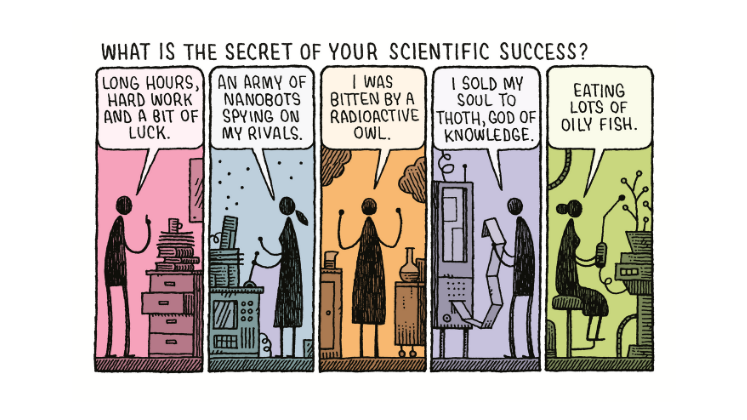Earlier in the year the chief executive of UKRI, Dame Ottoline Leyser, argued that a research culture that prizes the figure of the ‘lone genius’ has stifled productive collaboration. Drawing on the experience of UCL’s Faculty of Engineering Sciences Policy Impact Unit, Jenny Bird discusses five reasons that can make it difficult for individual academics to engage in the policymaking process and suggests that dedicated policy units present an important mechanism for supporting both learning about and increasing the impact of academic research on policy.
While there is a broad consensus among the policy studies community about what makes for effective policy engagement, studies have also shown that these insights are rarely drawn upon by funders and researchers seeking to influence change.
But there is less in the literature about why this is the case. What stops researchers from providing clear, relevant and reliable research evidence at the right time and in the right way? And why is it so hard for many researchers to build up lasting relationships with policymakers?
Two years ago, UCL’s Faculty of Engineering Sciences established a Policy Impact Unit to collaborate with researchers and help improve policy engagement activities. Here is what we have learned from our experience so far about the barriers that stop academics from putting advice in to practice.
Effective engagement requires more than generic communication: specialist knowledge and skills are needed.
Studies show that passive dissemination doesn’t work. It is not enough just to make research available, decision makers need to be properly targeted and evidence framed to motivate the recipient to make use of the evidence.
But how do you know what is going to be useful to a policy audience? And how do you frame outputs to motivate readers to act on the information provided? These are not straightforward questions. In order to do these things effectively, two attributes are required: first, a ‘deep knowledge’ of the policy system one is trying to engage with, including knowing who the key players are, how decisions are made, how policy problems are understood and framed and how to speak the language of the community.
passive dissemination doesn’t work. It is not enough just to make research available, decision makers need to be properly targeted and evidence framed to motivate the recipient to make use of the evidence.
Second, effective engagement requires a particular set of skills. ‘Policy entrepreneurs’ are skilled not only in ‘speaking the language’ of policymakers, but also in strategic thinking, making arguments and networking.
Researchers may not always have the time or the opportunity to develop the knowledge and skills that are required.
Effective engagement requires the flexibility to engage when the time is right.
Like so much in life, effective engagement is all about the … timing. In his Multiple Streams Framework, Kingdon identified a ‘policy window’ as the moment when three stars align: policymakers are paying attention to a problem, a viable solution is available and decision makers have the political will and ability to act. Some policy windows are years in the making; the result of countless hours of awareness raising, advocacy, and campaigning from those who are seeking change. Others can occur almost overnight, triggered by an unexpected emergency or in response to a high-profile event.
For researchers who are serious about delivering impact, policy windows are opportunities not to be missed. But, what if they happen to come along just when that big grant bid needs writing? Or – perhaps more frustratingly – six months after the research funding has ended? Researchers need to be flexible and fleet of foot to respond to these moments, but the timing is completely out of their control.
Effective engagement requires ‘trusted relationships’ and this takes time.
Multiple studies have shown the importance of ‘trusted relationships’ as part of effective policy engagement activities. As any good therapist will tell you, trusted relationships don’t happen overnight; building trust takes time, patience and work. It is not a trivial ask to expect time-poor researchers to invest their precious time in building relationships that have no guarantee of ever delivering impact.
Effective engagement requires multiple interventions, and this takes a significant investment of time.
Impact very rarely results from a single activity. It is not enough just to, say, write a policy brief. This will need to be complemented by targeted dissemination activities to ensure it reaches the right audience, such as targeted emails, seminars and social media activity. Then there will need to be follow up meetings with key stakeholders. Findings may need to be submitted to relevant consultations and so on. Although many researchers sincerely want to engage effectively, they simply don’t have the time on top of teaching and research commitments to do this in practice.
Intermediaries can help
What can be done to overcome these challenges? One solution that we are pursuing at UCL is the use of specialist policy intermediaries: staff who are integrated into research teams to lead on the delivery of effective policy engagement.
Specialist intermediaries are focused on delivering impact (that is, evidence-informed policy). This means that this is what they spend the majority of their time doing. They identify the right people and invest time in building up trusted relationships with them. They also bring the right knowledge (of the policy context, keeping up with grey literature, attending relevant events and so on) and the right skill set. Finally, they are ready to flex their approach in order to respond to policy windows when they open.
We think this approach can be very effective. Although we are a small team which has only been up and running for a short time, we have delivered 24 policy outcomes and impacts in our collaborations so far.
Our team represents just a small fraction of the growing number of policy intermediaries (and brokers and boundary spanners) that are being employed in universities across the UK. There is still lots to learn about how to do it well, and projects such as Capabilities in Academic-Policy Engagement will help to identify and share best practice. Our hope is that by recognising the important role that intermediaries can play, there will be more and better-quality engagement between the research and policy communities and ultimately better, evidence-informed, policies.
Note: This article gives the views of the author, and not the position of the Impact of Social Science blog, nor of the London School of Economics. Please review our Comments Policy if you have any concerns on posting a comment below.
Image Credit: Joshua Earle via Unsplash.









Insightful
Great piece and very much in line with what I learned when I was at OECD trying to have OECD’s research drive better policy change. I learned something else, though. That the information worlds of academics and policy researchers/policy makers are separate. Policy folk don’t have access to academic information (journals/books) and academics miss out on policy reports from IGOs and NGOs because they are not included in the discovery systems used by academics. To help bridge this gap and bring these two information worlds closer together, we’ve recently launched Policy Commons. It currently indexes more than 2.7 million reports from more than 7,500 policy organisations around the world. Would love to hear what you think of what we’ve built so far – and how it could be improved.